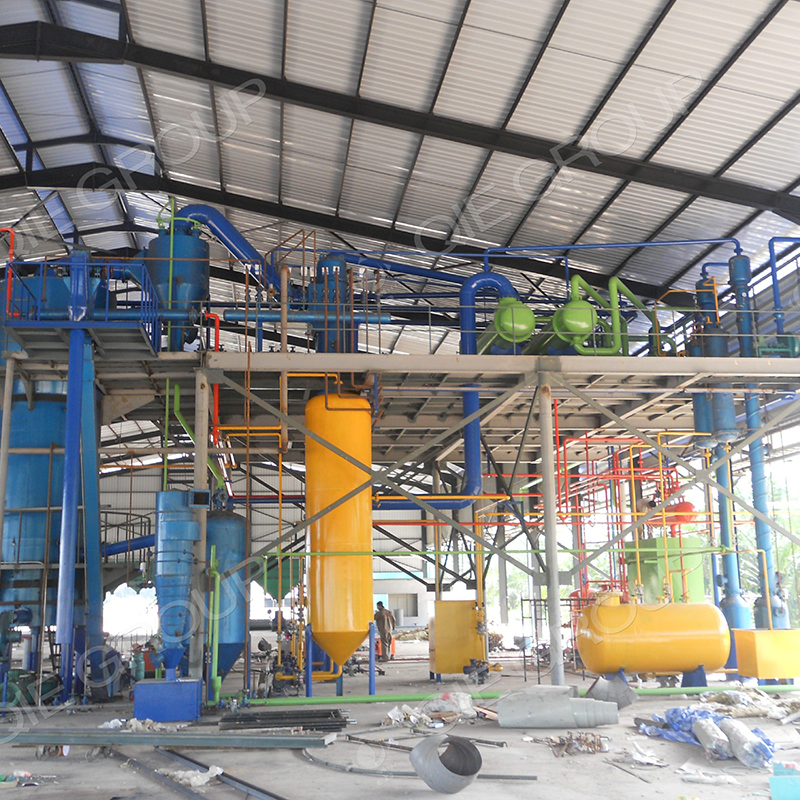The palm oil industry faces increasing pressure to improve production efficiency, reduce labor dependency, and ensure product quality. For small and medium-sized (SME) palm oil processing enterprises, transitioning to an automated production line is no longer a luxury but a necessity to remain competitive in a global market that demands higher standards and consistent output.
This article provides an in-depth analysis of how SMEs in the palm oil sector can upgrade their operations by adopting fully automatic palm oil extraction equipment featuring intelligent PLC (Programmable Logic Controller) systems and advanced cold-hot pressing technologies. The focus lies on maximizing throughput, enhancing oil yield, and improving hygiene standards, all backed by real industry data and technological parameters.
The key innovation driving the automation of palm oil production lines entails the integration of smart PLC control systems that enable precise monitoring and adjustment of critical process variables in real time. Unlike manual operations, these systems optimize machinery performance to ensure consistent oil extraction with minimal wastage.
Another pivotal innovation is the adoption of combined cold and hot pressing techniques. Cold pressing maintains the nutritional and antioxidant qualities of palm oil, while hot pressing increases extraction efficiency. By intelligently switching or combining these methods, the equipment achieves an oil yield increase of 5-8% compared to traditional single-method presses.
| Key Parameter | Specification | Benefit |
|---|---|---|
| Daily Processing Capacity | Up to 2,000 metric tons | Scalable for SME operations, significant throughput increase |
| Oil Yield Improvement | 5-8% over manual methods | Higher extraction efficiency improves profit margins |
| Automation Level | Fully automated with intelligent PLC | Reduces human error and labor costs, ensures consistent quality |
| Food Safety Standards | Meets international hygiene certifications | Enhances brand credibility and market access |
Adopting a fully automated palm oil production line can drastically reduce operational costs for SMEs. Studies indicate that labor costs can reduce by up to 30-40% due to minimized manual interventions, while oil extraction efficiency improvements directly translate to increased gross profit.
In addition, reduced downtime and consistent process control contribute to higher overall equipment effectiveness (OEE), often exceeding 85%. This reliability is vital for enterprises aiming to fulfill larger-scale contracts or maintain steady supply chains.
Plus, compliance with stringent food safety and hygiene standards helps SMEs penetrate export markets, where regulatory demands are rigorous. Certification advantages not only improve product perception but also command premium pricing.
Key Data Insight: An SME palm oil plant upgrading to automated machinery witnessed a 7% increase in oil yield and a 35% reduction in workforce hours within the first year, validating rapid ROI potential.
Penguin Group has leveraged over two decades of R&D expertise to design palm oil processing equipment that integrates state-of-the-art PLC controls with a robust cold-hot pressing framework. Their systems offer intuitive touch-screen interfaces, remote monitoring capabilities, and modular designs suited for varying scales.
Not only do these machines reduce manual labor and boost extraction efficiency, but they also come with comprehensive after-sales support including training, maintenance packages, and customized upgrade paths—ensuring long-term operational sustainability.
The equipment’s ability to process up to 2,000 metric tons per day aligns perfectly with the growth trajectory of mid-tier palm oil producers targeting high-volume production without compromising quality or safety.

This systematic approach mitigates risks and positions SMEs to harness automation benefits effectively.